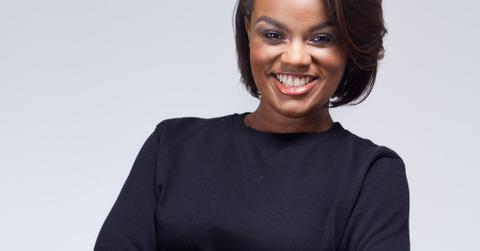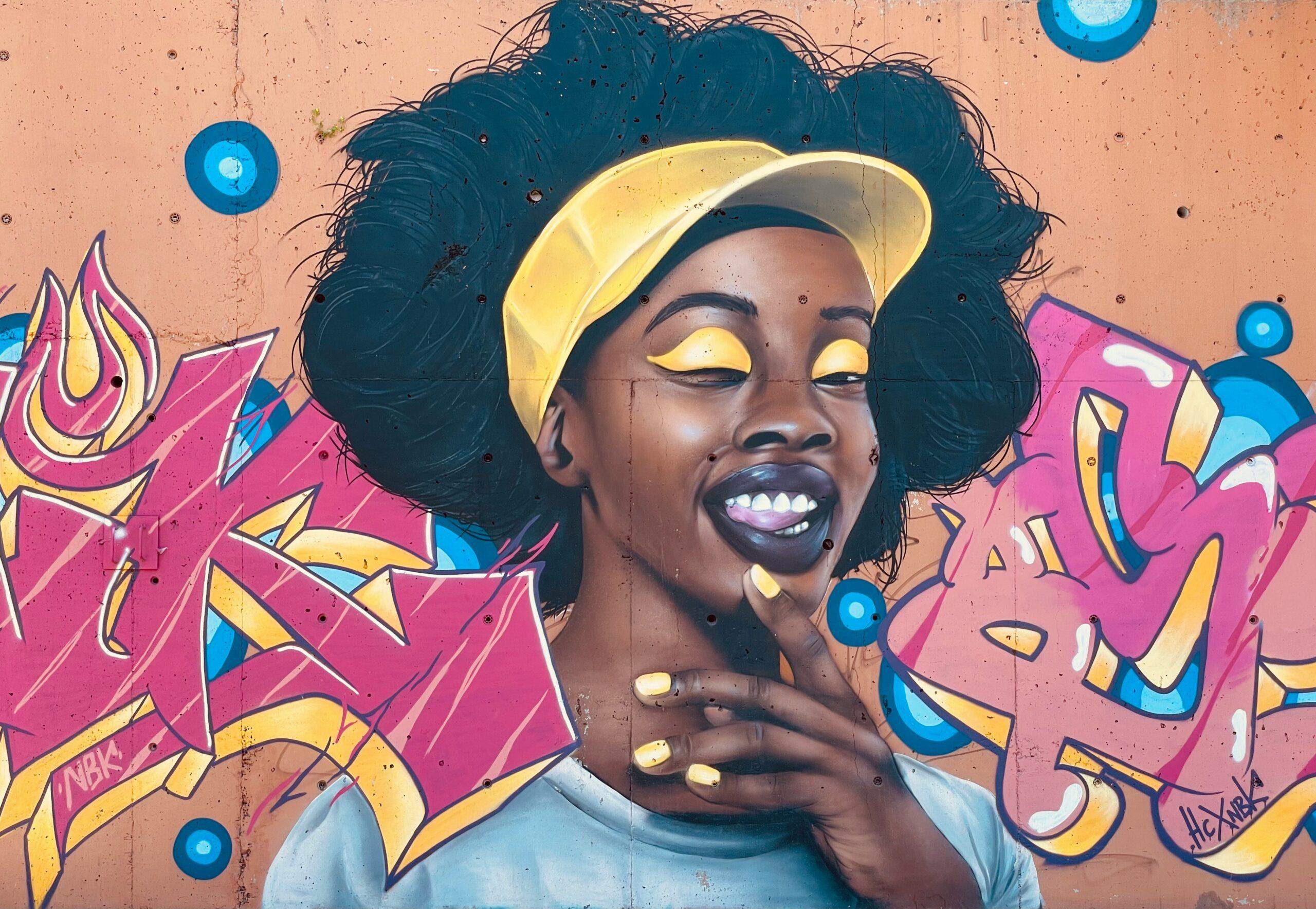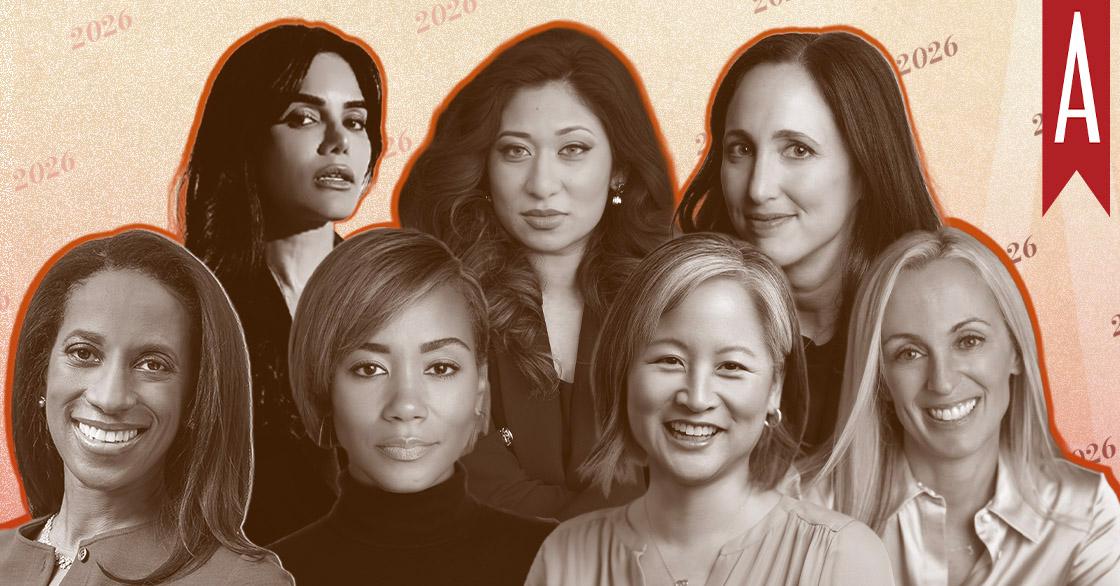A proud Brooklyn native of Panamanian descent, Anastasia Wright, 33, is a multifaceted, experienced marketing professional with a career rooted in entertainment marketing and entrepreneurship. Anastasia, a founder and principal owner at IMG Agency, Vice President of Marketing at Janet and Randy Jackson’s Rhythm Nation, and Executive Director at Minds Behind The Music triumphantly wears multiple hats.
Through experience, Anastasia has accumulated praise for her ability to provide innovation in an ever-changing industry. While Anastasia acknowledges being a work-horse as a part of her identity, she refuses to allow anyone else to define her. In a world where boundaries are blurred, Anastasia will be happy to tell you ‘no.’ As a member of The Recording Academy, she understands music through the lens of trends, business, and art. In a world where music is the ultimate universal language and those who monetize off of it garner incredible power, Anastasia prioritizes doing right by those who count on her.
In our interview, Anastasia discusses being a woman in power, the music industry, and promoting boundaries in a work-obsessed society.
Her Agenda: You currently wear multiple hats being a principal at IMG, Vice President of Marketing at Rhythm Nation, and executive director of MindsBehind the Music. Can you please give a brief run-through of a day in your life?
Anastasia Wright: Ultimately, I run everything through IMG agency and under IMG records, which is the label management side that I currently manage and will be growing this year as well. A day in the life consists of watching a lot of content on Instagram and reading a lot of interviews, but I feel like I am not as busy as other people portray themselves to be because I have to be still. I am not running around crazy unless we are doing a show or tour. In terms of a day to day, I wake up around seven and I am really big on preserving the time until 10 a.m. for me. I don’t take any calls or check any emails. Until 10 a.m., I am really big on self-care and boundaries, which is something you will learn in your career and journey. Mornings are mine and when I wake up, I read, I’m present, I make breakfast, I workout. All of that is essential to my productivity and being able to be the best person I can be for the people whose behalf I work on. And then after 10 a.m., it can be nonstop, a day of me at my office, or sometimes I work from home. I may have meetings, a lot of calls, or I may have a show or dinner that night. I have a lot of interaction which is necessary for what I do but my morning routine rarely changes.

Her Agenda: We live in a society where there is a notion that success is achieved after a compilation of minimal sleep, absence of a personal life, and accepting disrespect until we are in power. As you grew throughout your career how did you navigate those expectations and did you find yourself complying to them in order to advance in your career?
Anastasia Wright: I have noticed that a lot of people have trouble separating their self-worth from what they produce. Those two things should not be intertwined. Your self-worth should not be wrapped up in your level of productivity. And that, unfortunately, is the product of a capitalistic society that we work in. The United States of America has a very unhealthy work culture and if you look at other countries, when 5 o’clock hits, they are out. There are differences between the East and West coast as LA and NY are very different, but they both revolve around being non-stop. Part of it is necessary because you need that ambition, hustle and tenacity to get things done and not give up but it should not be at the expense of rest, integrity,and being a good person. The millennial generation is changing what work means to us. There is millennial privilege as our ancestors did not have the space to think about how they felt, they had to make it happen. Especially being people of color and from low-income backgrounds, we carry that stigma that we have to keep going. It’s very unhealthy and burn-out is real. In the music industry, it’s notorious to have days where I had to be in at 6 a.m. but I still didn’t get to leave early, where in other industries I would have been able to. It’s expected of me to do 12- 14 hour days without complaint.
-A lot of people have trouble separating their self-worth from what they produce.
There’s a part of it that molds you because, unfortunately, there are standards that have been set prior to us, but how you navigate that is learning how to stand up for yourself. Also, if you do the work, there is very little anyone can say to you, honestly. If you are efficiently getting your job done and superseding people’s expectations for you and you’re doing it in a way that’s different from them, that’s your argument. There is literally no alternative that can make up for experience. As women, we’re going to be diminished, paid less, and put in [tough] positions but we’re going to learn how to handle them. There is no advice that will help you besides going through it yourself and managing it, but it’s something you get better at, the further you progress in your career. You will learn trial by fire.

Her Agenda: You excel in the music industry which is not always susceptible to women in power. As you advanced in your career, what helped you navigate your challenges and what kept you in pursuit of your goals when you wanted to quit?
Anastasia Wright: What is different about me from other people is that I worked backwards. I created my own company as a senior in college while simultaneously working in the industry. My company, IMG, was always there. IMG is so important to me because I started it in college and have been building it for 12 years. You have to remember why you started and that’s a promise that you make to yourself. It’s okay to change and pivot, but if it’s something you know you are innately passionate about, it should be something that grounds you throughout the noise. Even if you are not building a company, it’s still going to be difficult. Finding people throughout your career who you can trust and talk to is essential. Being a business owner is very lonely and you can feel misunderstood. Also knowing that you are not alone and that there are other women going through similar things has been helpful. The ups and downs of ownership are very difficult. Even if it’s one person, find people who you can trust and be unfiltered with.
-I created my own company as a senior in college while simultaneously working in the industry. My company, IMG, was always there. IMG is so important to me because I started it in college and have been building it for 12 years.

Her Agenda: Having been in the music industry for over a decade, what’s an aspect of the industry you are happy that has changed and is there an aspect that you wish stayed the same?
Anastasia Wright: I’m happy that more women are in charge, accepted, and celebrated. I’m super happy for all of the glory, platforms, and conferences that are exploding in the industry now. For me, the next tier is highlighting women of color from Black, Asian, Pacific Islander, to Latina. There’s a lot of us in the business that make the industry go and that’s a beautiful thing I want to see us highlighted more. I’m also happy that there is more transparency. There’s misinformation out there but nonetheless this industry is a lot more free flowing than it used to be in terms of practices, how things are run, and how artists can succeed on their own. I think the playing field is leveling out between the balance of power between the creators and those that monetize them.
-The millennial generation is changing what work means to us. There is millennial privilege as our ancestors did not have the space to think about how they felt, they had to make it happen.
I miss the work ethic and integrity from a lot of the creators. It took so much more to make it because there was not all of this access. And the quality of artists has gone down, not to say that great artists have not emerged, but I challenge anyone to say that we will reference the 2010’s the way we reference the 90’s. I feel like there is so much missing in terms of the process because everything has become so easy and accessible. Artists are so touch and go. That’s great but there is a lower quality because artists can create, upload, and go. It’s definitely changed what good music is. I look at a lot of accolades that artists are getting, not that they don’t deserve it, but you have to allow time for people to become great. You’re not going to become great in a year. You need time and to put in your 10,000 hours. The industry is tricking themselves by giving these artists way too much, too soon. You can celebrate somebody without giving them so much because then there is something else to aspire to. We are lowering the bar in the industry, not only for artists but for executives. You have to put in that work and time. It’s going to be interesting to see what this industry looks like in the next 10 years because of that.

-We are lowering the bar in the industry, not only for artists but for executives. You have to put in that work and time. It’s going to be interesting to see what this industry looks like in the next 10 years because of that.
Her Agenda: That ties into my next question, which is, whether or not there are any trends and musical qualities that you want to make a strong comeback.
Anastasia Wright: The ’90s have been here and it’s never left. I’m so mad that I gave away so much stuff because when I was younger I wore Nautica, Coogi, Polo, and Ecko Red. The ’90’s feels like it never left and it’s here to stay. I see in the indie space that the 70’s may be coming back with the dreamy, vibey feel from H.E.R. and Ari Lennox in terms of style, sound, and video references. So many artists that were reigning supreme in the ’90’s are still being celebrated today in pop culture.
Her Agenda: I know that you believe branding can make or break an artist. With everyone aiming to get their foot in the door, there is not always a clear distinction between artists as many people sound the same. From your perspective, what are a few key branding tips to presenting oneself as an original in an industry full of copycats?
Anastasia Wright: It really starts with the ‘why?’ As consumers, we are very smart these days and there are reasons why certain artists resonate longer. When it comes to the music you typically choose to listen to, its music with substance and a message. It comes down to an artist who chooses to be authentically themselves which is evident in their music. Though you change when you get older, you should understand where you are at that moment. That’s what I love about artists who have catalogs. When I listen to Janet Jackson’s The Velvet Rope, I know exactly where she was as a woman and person compared to Rhythm Nation, and Janet. When you are attuned with where you are as a person, that comes out in the music. Authenticity will always be marketable because no one can be you. There may be similarities in terms of vibes and styles but they are also different which comes from them being authentically themselves. They are their experiences, influences, styles, and voices despite the genres somebody wants to put them in. It goes back to who you are and why you want to make this music. Talk about that ‘why,’ show where you’re from, who you are, what you like, and your process. Show as much as you are comfortable with because there are some artists who are very shy and introverted which is why they are also amazing producers and songwriters as they often like to be cooped up in the studio.

-Mornings are mine.
Her Agenda: How often do you say no and what has been your journey to saying it unapologetically?
Anastasia Wright: I say no a lot these days. It took me a while to be able to say so and learn that boundaries are important. Once you learn that word, boundaries, and start putting it into practice in all aspects of your life, the better you will be. Boundaries make you better. It comes from a sense of self-worth and understanding to know that I deserve space, time, goodness, love, and being paid what I deserve. When you start sitting in that, the ‘no’s’ comes naturally. I think women feel like they have to say it in a masculine tone or hard way but you don’t have to. You can just be yourself and say no, I’d rather do this and here’s why.’
But when you’re new and learning, the insecurity creeps in as experience is the best teacher. Nobody can take anything away from me because, Google me, I’ve done it. I understand the level of insecurity when you’re new to something because I’m learning new things now. My experience grounds me because, though I may not be an expert, I can connect knowledge from other routes. Your confidence will come from experience, but as soon as you can sit in your boundaries, it will create expectations about you from other people. When you set those boundaries and say no to things that don’t feel good or sit right with you, and you’re not going against your soul and integrity, it sets an expectation of you for other people. They know who you are and that you are not easily moved. I’m not going to ask for anything from anybody that I am not willing to give. Setting that tone for yourself is powerful because as women and women of color, we have to fight so much harder as we are paid less than so many demographics. We have to work harder and set that boundary without being stigmatized as the angry Black women.

Her Agenda: What are you most proud of about yourself both personally and professionally?
Anastasia Wright: I struggle with this because I’m the quintessential workaholic, who’s never satisfied and always looking for what’s next. Professionally, I am proud of my company and it took me a while to feel that way. I am humble and grateful when people speak highly of me but my goals are so big that it’s hard to celebrate the wins along the way, which is so important. I am so proud of myself for running a company. I run a company, I don’t work for anybody else, and I employ and pay women, particularly of color. I’m really proud that I create safe spaces for women both professionally and artistically. I’m very proud that I create safe spaces for women in the industry both professionally and artistically and that I fight for women and my artists. Whether it’s that they feel uncomfortable, aren’t getting paid enough, or being disrespected. I’m happy to battle for them and to be in a position where I can.
Personally, I am proud that I am a good person because it goes a long way. I don’t do a lot of interviews and panels, as, from my opinion, a lot of people are full of B.S. and don’t want to talk about what’s going on. Sometimes I get petty and want to snap back, but I’m really proud that I always choose to be positive which is so hard sometimes. It is so hard to be positive in this world and I try to add value to it every day. It’s a huge part of my success because people know that I’m going to do right by them and be a good person. Even if I fail, fall short, or miss the mark, which is normal, it’s not going to come out in a negative way because of my character.
[Editor’s note: This interview has been edited for length and clarity.]








